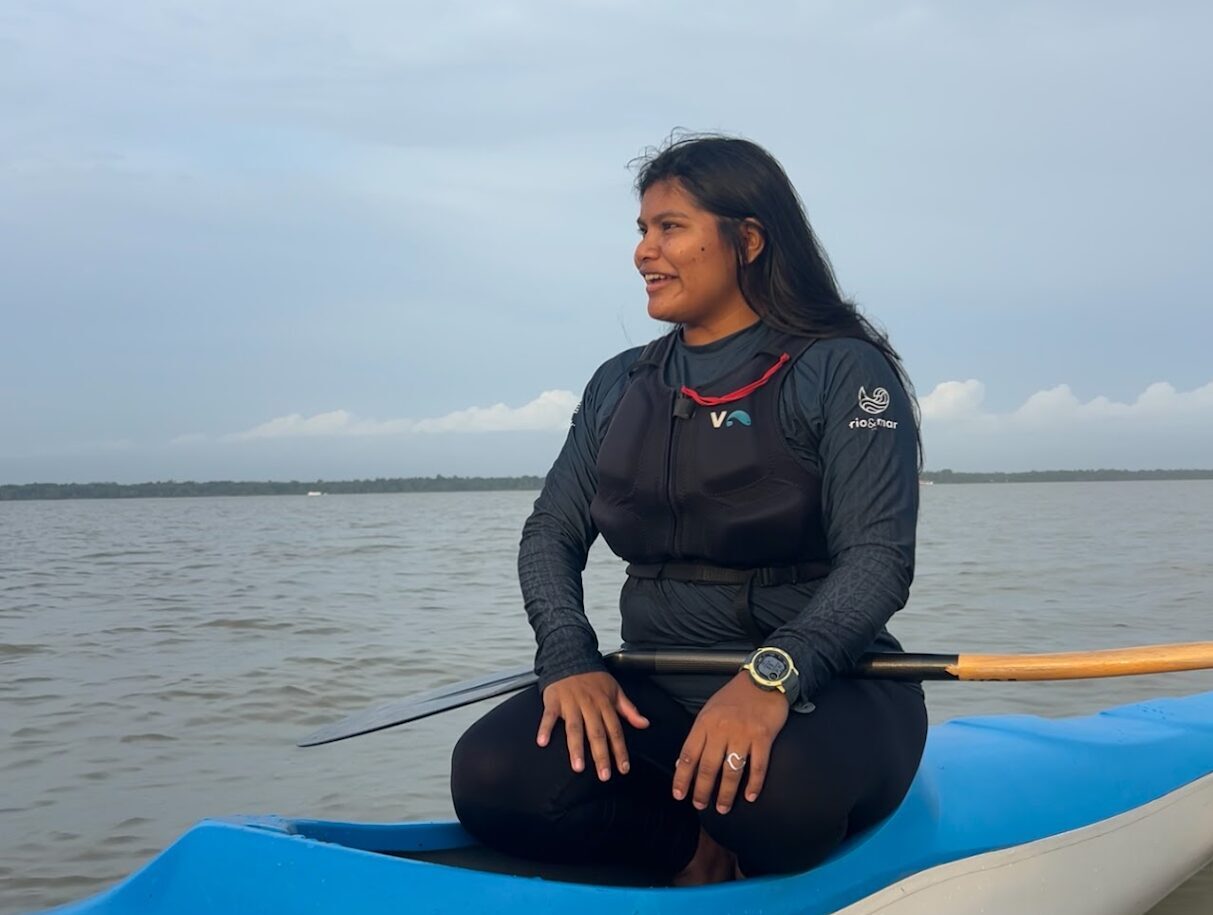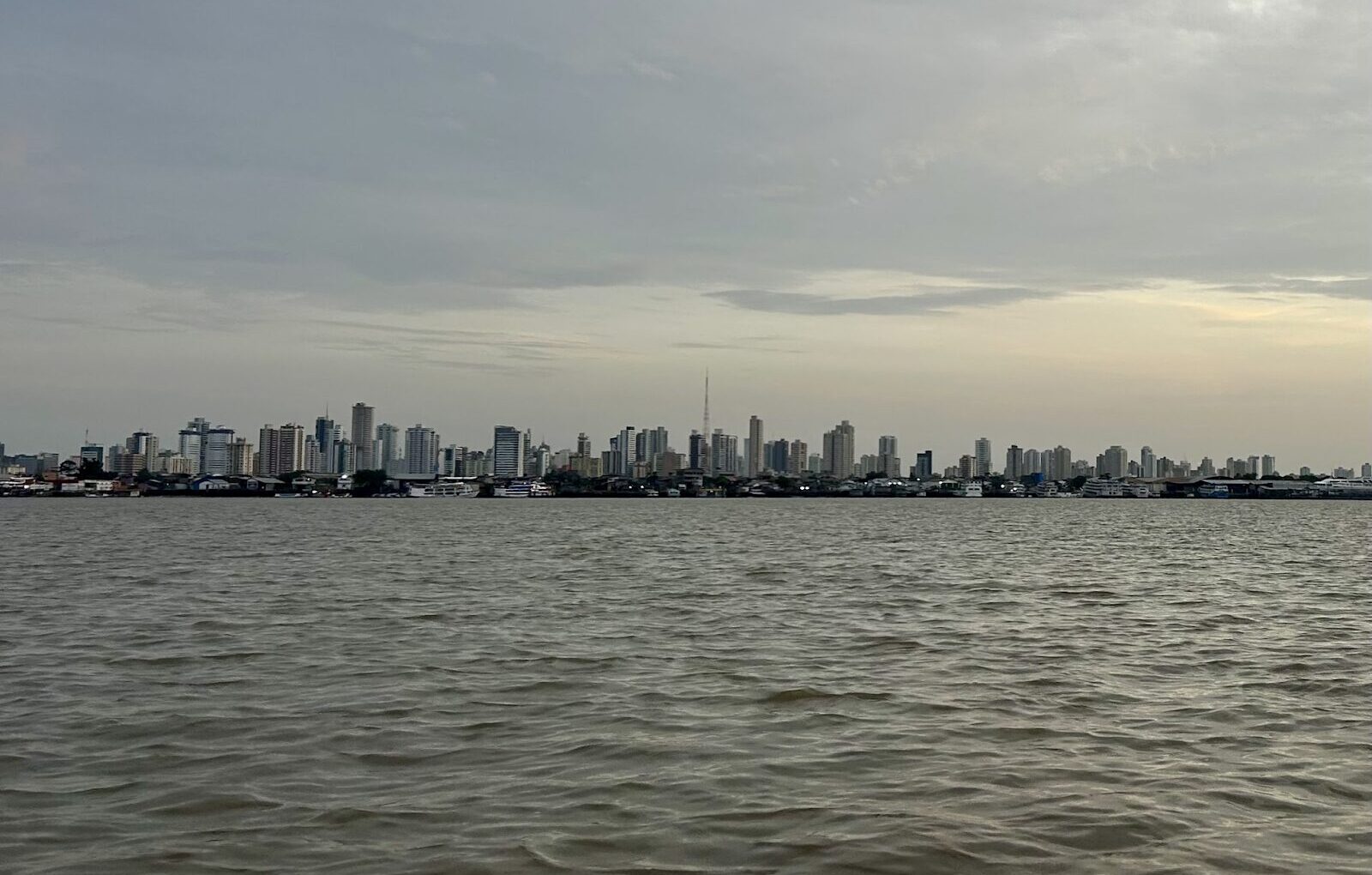
Alexia Massoud

Alexia Massoud
In the waters of Rio Guamá, all of nature’s sounds are often overshadowed by the loud, echoing motor of boats that travel up and down the river. Yet every morning, Vitória Nunes and Nanda Baniwa instead choose to listen to their canoe paddles treading the water and the peaceful sounds of native birds and insects while they take travelers on excursions from Belém to Ilha do Maracujá.
Nunes and Baniwa live in Belém, an Amazonian city in the north of Brazil. At Rio e Mar Va’a, an ecotourism company dedicated to canoeing excursions, they’re able to introduce people from around the world to the heart of the Amazon — all with a focus on sustainability.
“Using our canoes as instruments, we can show that economic development can be done without destruction,” Nunes, who founded the company in 2020, said. “We are preserving the Amazon in an active way.”
They told me Belém is a city that was built with its back to the river; Belém didn’t care for the people and habitats across the water, nor did it leave beach space for the city’s inhabitants to swim in and enjoy the river, they said. The islands that are just 20 minutes by boat from Belém and home to thousands of ribeirinhos — or people who live right on the edge of the river— don’t even have potable water, they said.
Nunes and Baniwa serve as a rope of trust between outsiders and the local ribeirinhos, and in doing so, they also put women in the front and center of the businesses they work with.
A study conducted by Fundação Getúlio Vargas in 2022 found that companies with female leadership were often high-performing in sustainability and more in line with the United Nations’ Sustainable Development Goals.
“With our work, we show the importance of female empowerment in the waters, even though canoeing is dominated by men,” Nunes said.

Women in Brazil represent nearly 50% of the number of professionals who make a living based on water activities, according to the Brazilian Ministry of Fisheries and Aquaculture. This represents over 815,000 women who are artisanal and recreational fishers as well as aquaculturists, or professionals who raise aquatic organisms like fish and shellfish under controlled conditions for consumption.
In Brazil’s tourism sector, which largely involves nautical activities and ecotourism, women also represent half of the workforce, according to Brazil’s National Tourism Observatory.
Yet, regardless of their powerful role in these industries, they are the most affected by climate change, said Brazil’s Minister of Fisheries and Agriculture André de Paula. The reduction of fish stocks, floods, and salinization are among the most significant impacts felt by women, he said.
“There is no sustainable future without the women of the water,” de Paula said. “The strength of the waters is the same as that of the community that lives in them.”
For this reason, COP30 in Belém, Brazil, shone a spotlight on women and communities of the waters. From panels, to solutions, and even inclusion in high-level negotiations, the presence of those who most intensely feel the effects of climate change was strongly felt.

“Brazil is leading by example” on representing and protecting those whose lives depend on aquatic systems, said Brazil’s First Lady Janja Silva.
The country’s government had already created some solutions prior to hosting COP, such as being the first country in the world to include the “Blue Curriculum” in schools across the country, launching the National Artisanal Fishing Plan, and a prize named “Mulheres nas Águas” (“Women in Waters”) that is awarded every year.
But COP also saw the launching of new programs like the Ocean Task Force, co-led with France, and the approval of the Belém Package’s One Ocean Partnership, which includes a $20 billion commitment by 2030 for supporting water communities’ resilience to climate change and seeks to generate 20 million blue jobs, according to COP30’s official website.
However, in the midst of bright solutions, there are still many developing states that are reliant on the ocean for livelihood and are still struggling to finance sustainable programs.
Pio Manoa, deputy director general of the Pacific Islands Forum Fisheries Agency, said some of the Pacific’s small, developing islands source 70% of their GDP from fishing, which is either a first or second source of livelihood for families who live there.
“We feel the effects of climate change already,” he said. “We need less talk and more action, especially because adaptation financing is always lower than mitigation financing.”
As major financing goals are pushed farther into the future, and as COP’s presidency transitions to that of Turkey and Australia, it remains to be seen if promises will be met.
Reflecting on the future, Nunes concluded, “without destroying our waters, our environment, we are leaving future generations with the privilege of exploring and benefitting from the very nature we have right now.”